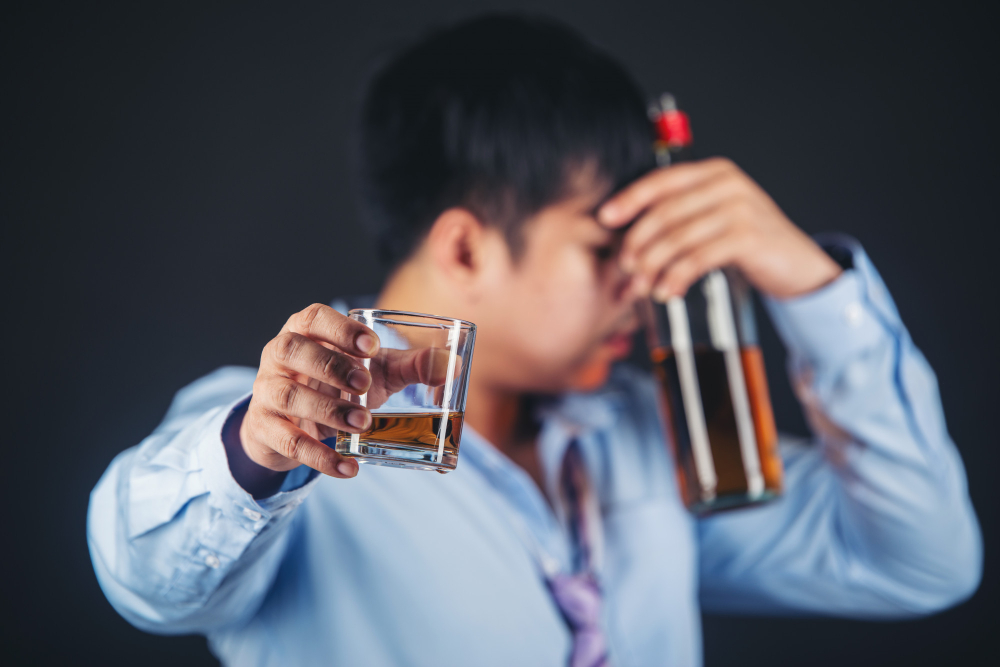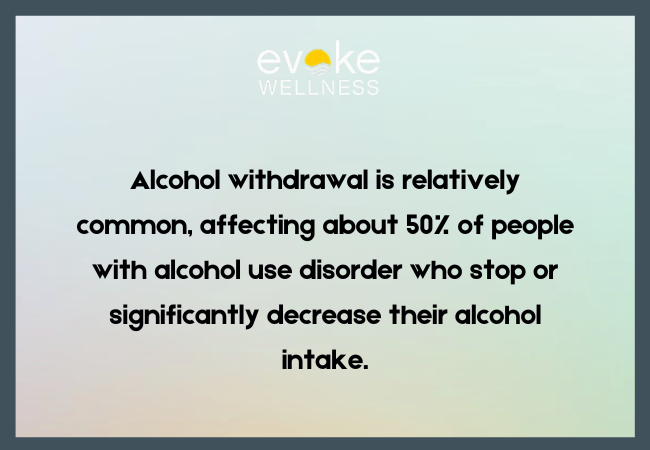Alcohol consumption is deeply ingrained in many cultures worldwide, often associated with social events, celebrations, and relaxation. While moderate drinking may not pose significant health risks for some individuals, excessive or prolonged alcohol use can lead to dependence and serious health complications. Understanding the process of detox, its associated symptoms, potential risks, and the importance of seeking professional help is crucial for anyone considering reducing or ceasing alcohol intake.
This article provides a comprehensive guide to alcohol detox, covering withdrawal symptoms, risks, the detox timeline, and treatment options for a smoother recovery journey.
What is Alcohol Detox?
Alcohol detoxification, commonly referred to as alcohol detox, is the process by which the body eliminates alcohol from its system. This natural process occurs after an individual stops consuming alcohol, allowing the body to metabolize and expel the remaining substances. However, for individuals with heavy or prolonged alcohol use, this process can be accompanied by withdrawal symptoms that range from mild to severe.
Who Needs Alcohol Detox?
Detox is necessary for individuals who:
- Drink heavily or binge drink frequently.
- Have developed alcohol dependence (needing alcohol to function).
- Experience withdrawal symptoms when not drinking.
- Have tried to quit alcohol before but relapsed due to severe withdrawal effects.
Symptoms of Alcohol Withdrawal
The severity and onset of alcohol withdrawal symptoms can vary based on factors such as the duration and intensity of alcohol use, individual health conditions, and genetic predispositions. Common withdrawal symptoms include:
- Mild Symptoms (6 to 12 hours after the last drink):
- Anxiety
- Shakiness or tremors
- Sweating
- Nausea or vomiting
- Headaches
- Insomnia
- Moderate Symptoms (12 to 48 hours after the last drink):
- Increased blood pressure
- Rapid heart rate
- Confusion
- Mood swings
- Irritability
- Severe Symptoms (48 to 72 hours after the last drink):
- Seizures
- Hallucinations (visual, auditory, or tactile)
- Delirium tremens (DTs), characterized by severe confusion, rapid heartbeat, and fever
It’s important to note that not everyone will experience all these symptoms, and their intensity can vary. However, severe withdrawal symptoms, particularly delirium tremens, can be life-threatening and require immediate medical attention.
Alcohol Detox Timeline
First 6-12 Hours:
- Mild symptoms begin (anxiety, nausea, insomnia, and tremors).
- Individuals may still feel alcohol’s lingering effects.
12-24 Hours:
- Symptoms worsen, including high blood pressure, irritability, and restlessness.
- Some may begin to experience hallucinations.
24-48 Hours:
- Peak withdrawal symptoms appear (strong cravings, sweating, vomiting).
- Seizures may occur.
48-72 Hours (Most Critical Stage):
- Delirium Tremens risk is highest.
- Individuals may experience severe confusion, agitation, and hallucinations.
72+ Hours and Beyond:
- Physical symptoms subside, but psychological symptoms (anxiety, depression, cravings) may persist for weeks or months.
- Long-term medical and psychological support is essential for recovery.
Risks Associated with Alcohol Detox
While some individuals may consider detoxing from alcohol without medical supervision, it’s essential to understand the potential risks involved:
- Seizures: Abrupt cessation of alcohol can lead to seizures, which can result in injury or even death if not properly managed.
- Delirium Tremens (DTs): This severe form of withdrawal can cause sudden and severe mental or nervous system changes, leading to confusion, hallucinations, and autonomic instability. DTs have a mortality rate of up to 15% if left untreated.
- Dehydration and Electrolyte Imbalances: Vomiting, sweating, and reduced intake of fluids during withdrawal can lead to dehydration and imbalances in essential electrolytes, affecting heart and muscle function.
- Mental Health Challenges: Withdrawal can exacerbate underlying mental health conditions such as depression and anxiety, increasing the risk of self-harm or relapse.
When to Seek Professional Help
Given the potential risks associated with alcohol detox, seeking professional assistance is highly recommended, especially for individuals with:
- A history of heavy or prolonged alcohol use
- Previous withdrawal experiences
- Co-occurring medical or mental health conditions
- Limited social support systems
Professional detox programs offer:
- Medical Supervision: Healthcare professionals monitor vital signs, manage withdrawal symptoms, and provide medications to reduce discomfort and prevent complications.
- Supportive Care: Nutritional support, hydration, and a safe environment are provided to ensure the individual’s well-being during the detox process.
- Transition to Treatment: After detox, professionals can facilitate entry into comprehensive addiction treatment programs in Ohio, addressing the underlying causes of alcohol use disorder and promoting long-term recovery.
Professional Alcohol Detox Options
Professional detox facilities provide medical and emotional support to help individuals safely withdraw from alcohol. Treatment options include:
1. Medical Detox Centers
- 24/7 medical supervision to prevent severe complications.
- Medications to ease withdrawal symptoms (benzodiazepines, anti-seizure meds).
- Hydration and nutritional support to stabilize the body.
2. Inpatient Detox Programs (Rehabilitation Centers)
- Comprehensive treatment in a structured environment.
- Therapy and counseling to address emotional aspects of alcohol dependence.
- 24/7 medical care for safety and comfort.
3. Outpatient Detox Programs
- For individuals with mild to moderate withdrawal symptoms.
- Medical supervision without full hospitalization.
- Daily check-ins and prescribed medications to manage symptoms.
4. Medications for Alcohol Withdrawal and Long-Term Recovery
Doctors may prescribe medications to ease withdrawal and reduce cravings:
- Benzodiazepines – Prevent seizures and reduce anxiety.
- Naltrexone – Reduces alcohol cravings.
- Acamprosate – Helps restore brain balance post-detox.
- Disulfiram (Antabuse) – Causes unpleasant reactions when alcohol is consumed, discouraging drinking.
Importance of Medical Detox Centers
A medical detox center in Ohio plays a pivotal role in ensuring safe and effective alcohol withdrawal. These centers are equipped to handle the complexities of detox, providing:
- Individualized Care Plans: Tailored treatment plans that consider the individual’s health status, history of alcohol use, and personal preferences.
- Medication Management: Use of medications like benzodiazepines to alleviate withdrawal symptoms and prevent severe complications.
- Emotional and Psychological Support: Counseling services to address the emotional challenges associated with detox and prepare individuals for ongoing treatment.
Conclusion
Alcohol detox is a critical first step toward recovery from alcohol dependence. Recognizing the symptoms of withdrawal, understanding the associated risks, and acknowledging the importance of professional help can make this process safer and more manageable. If you or a loved one is considering alcohol detox, it’s imperative to consult with healthcare professionals or a reputable medical detox center in Ohio to ensure the best possible outcomes.
Alcohol detox is a challenging but necessary step toward freedom from addiction. While withdrawal symptoms can be uncomfortable and dangerous, professional detox programs ensure safety, support, and a strong foundation for recovery. For more information or to seek assistance, please contact us at 866.430.9267.
Frequently Asked Questions (FAQs)
What is the safest way to detox from alcohol?
The safest way to detox from alcohol is under medical supervision at a professional facility. Medical professionals can monitor symptoms, provide medications, and ensure a safe detox process.
How long does alcohol withdrawal last?
Alcohol withdrawal typically lasts between 5 to 7 days, with symptoms peaking within the first 72 hours. However, some individuals may experience prolonged symptoms, known as post-acute withdrawal syndrome (PAWS).
Can I detox from alcohol at home?
While some individuals attempt to detox at home, it is not recommended for those with severe alcohol dependence due to the risk of serious complications like seizures and delirium tremens.
What medications are used for alcohol detox?
Medications such as benzodiazepines, anticonvulsants, and certain vitamins (like thiamine) are commonly used to manage withdrawal symptoms and prevent complications during detox.
What happens after alcohol detox?
After detox, individuals are encouraged to enter comprehensive treatment programs that provide therapy, counseling, and relapse prevention strategies to support long-term recovery.



